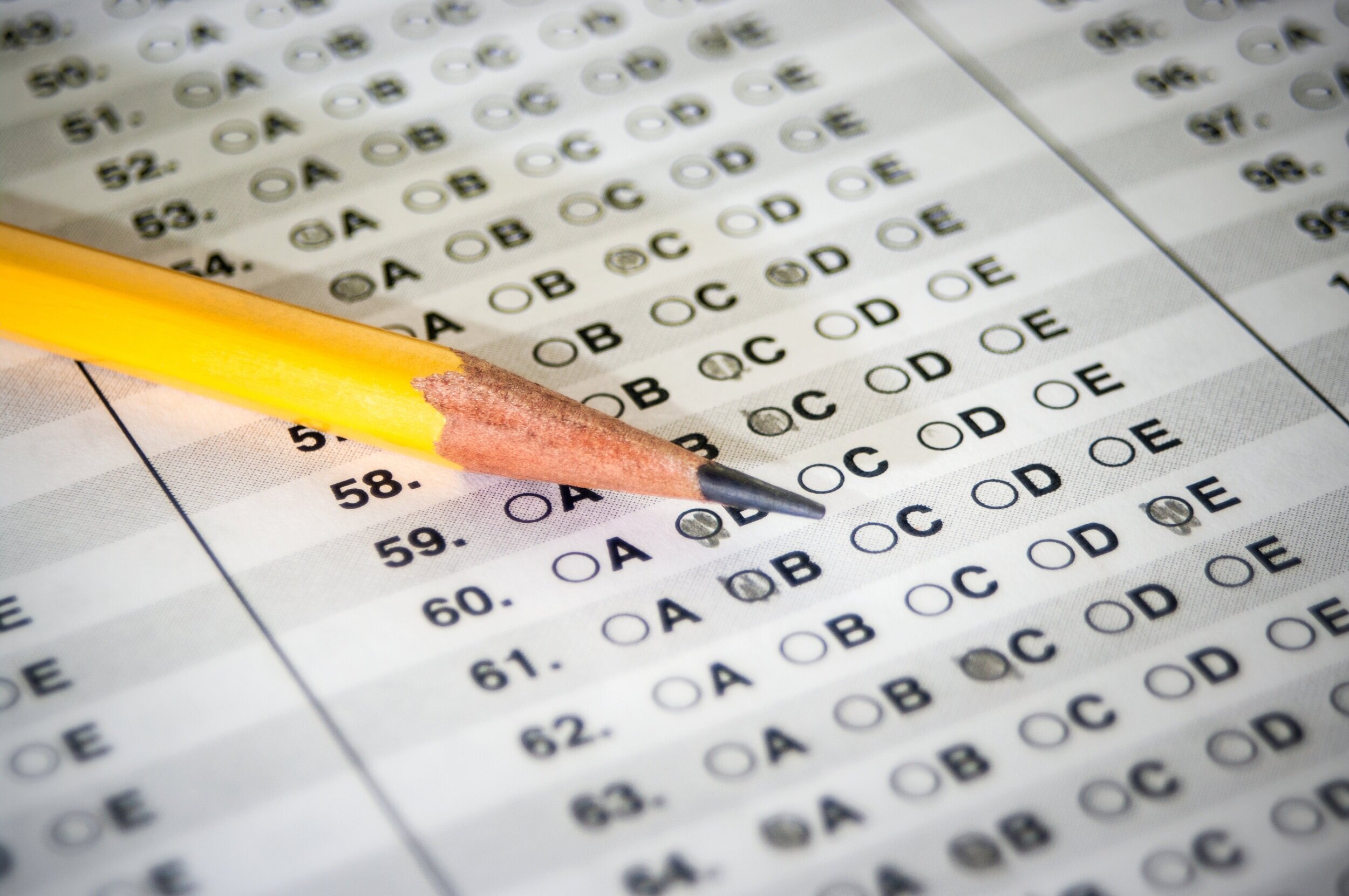Why Your Child Should Not Listen to Music While Studying
by Peter Lindholm and Candice Lapin
Here is a very common exchange that our tutors have during their sessions.
Student: “Can I listen to music while we study?”
Tutor: “No, I don’t think that’s a good idea.”
Student: “Why not? We’re just quietly working, and it really helps me focus.”
What would you do if you were the tutor in this situation? Does it feel a little harsh to you to entirely eliminate music from studying sessions? Is music actually bad for your child? The short answer is: Yes. Music or any loud distractions while studying are detrimental to your child’s ability to perform well on test day.
The Mozart Effect: Refuted
You may have heard some of something called “the Mozart effect.” This term refers to a 1997 book by Don Campbell, which used a 1993 study to “prove” that listening to Mozart, both at an early age and in adulthood, leads to enhanced intelligence. This led to a huge movement in the ’90s of parents giving Mozart to children of all ages, even infants. In fact, the governor of Georgia at the time, Zell Miller, even proposed an amendment in the state budget that allowed for every child in the state to have a Mozart CD. While the study above might argue that music enhances cognitive function, the enhancement of cognitive function is a separate element from any effect on performance come test day. (1) (2)
It is also important to note that the Mozart effect has since been widely refuted. First, it relied heavily on IQ tests which are no longer relied upon as a data point. The studies that the book was based on used IQ tests as their data point for intelligence. IQ tests have been shown to not be an accurate measure of overall intelligence, as they don’t carry with them an understanding of the multiple types of intelligence.
Additionally, any spike inability has actually now been understood to be enjoyment arousal. In fact, subsequent studies proved that the Mozart effect was more of an in-the-moment response to enjoying the music, rather than a lasting change in the student’s intelligence. This phenomenon, known as “enjoyment arousal,” claimed that only people who enjoyed the music did better on the tasks, and had little value outside of the specific cognitive tasks the subjects were performing, under those specific conditions. (3) The music put them in a positive mood, and therefore they did better on the tasks at the moment.
So, Why No Music?
According to our founder, there is a difference between “studying” and “test performance.” Those that support music in session argue that: Soothing or relaxing music can help students ease stress and anxiety when studying.(4) Though it might act as an initial stress “reliever”, it is actually detrimental to long-term performance.
State-Dependent Learning
As a parent, you might be scratching your head and wondering why. Because of a phenomenon called state-dependent learning. In order to perform well on an exam, you must prepare/memorize/study in the same conditions as you would on the exam. Since exam rooms are typically quiet with relatively little distraction—perhaps for some rustling papers or dropping pencils—you need to create the same conditions while you study so that you stay in the same state! In other words, you must work backward.
An Example:
If you were preparing for a running race in November in New York City. Since you know that the temperatures in New York City begin to drop in New York, you might suspect that it will be cold rainy weather. In this case, in order to best prepare to run your best race, you would need to prepare for that race in similar conditions so that you ensure that you perform optimally. In this case, you would want to prepare for freezing temperatures, rain, or even potentially falling snow. You would want to be able to run in conditions so you could understand how to avoid slipping or falling. You would want to prepare in colder temperatures so you could acclimate to any strain on your body. You certainly would not prepare simply in sunny weather. It wouldn’t adequately prepare you for the conditions of the race. The same is true for studying. We need to be in the same “state”, hence the term “state-dependent.”
You can see why music would then be harmful. While studying music in the short term might reduce anxiety, it would be counter to the quiet conditions on test day.
Music is also distracting
Most recently, a 2010 study by Dr. Nick Perham proved the harmful effect that music can have on focus and memorization. Perham used a group listening to music they enjoyed, a group listening to music they didn’t enjoy, and a group listening to no music at all. He then asked them to perform simple memorization tasks. He found that both the groups listening to music they liked and music they didn’t like, performed worse on the tasks than the group listening to no music at all.(4) The music was a distraction! The different tones and sounds in music actually pull our attention away from the task at hand. Despite our best efforts, when listening to music, our brains are tuned to try and distinguish sounds, tones, and lyrics. This takes away from the focus required to effectively memorize information.
We have noticed that this especially helps children with ADHD. Of course, ADHD already affects your child’s ability to focus, which makes rendition and memorization an even more important part of studying. If they’re going to have trouble retaining new information, they must have it reinforced over and over again. And music will only slow down that process. If your child has been diagnosed with ADHD and you’re looking for more natural ways to help them, click here for our best tips!
CONCLUDING THOUGHTS
The benefits of listening to music while studying have been refuted, but they may be useful BEFORE studying. Music can put your child in a good mood heading into their studying or tutoring session, and that enhanced good mood may help their memorization. But while studying, they should be quiet and ready to learn.
Sources:
https://www.fnu.edu/benefits-studying-music/
https://study.com/academy/popular/is-it-good-to-listen-to-music-while-studying.html











How-are-executive-functioning-skills-different-from-study-skills? Executive functioning are cognitive processes that enables us to plan, focus attention, remember instructions, and juggle multiple tasks successfully. While study skills are….